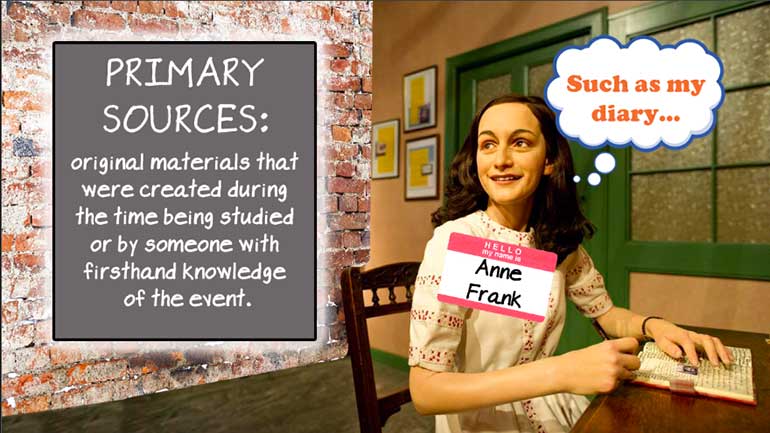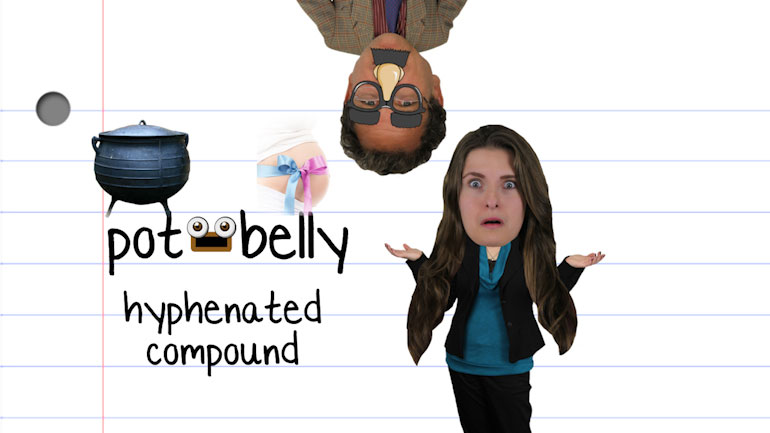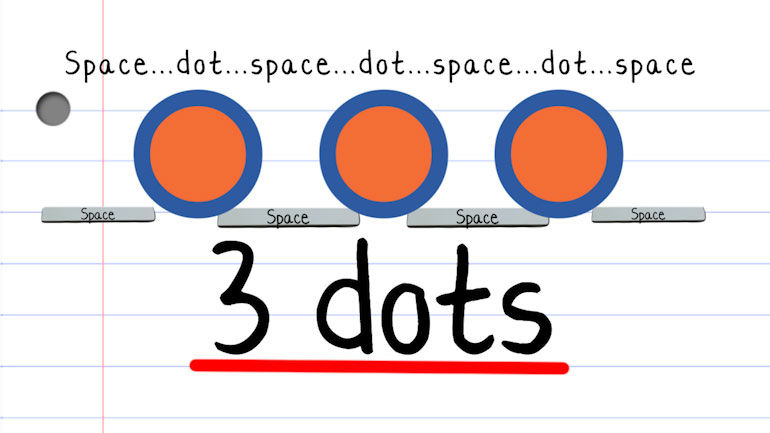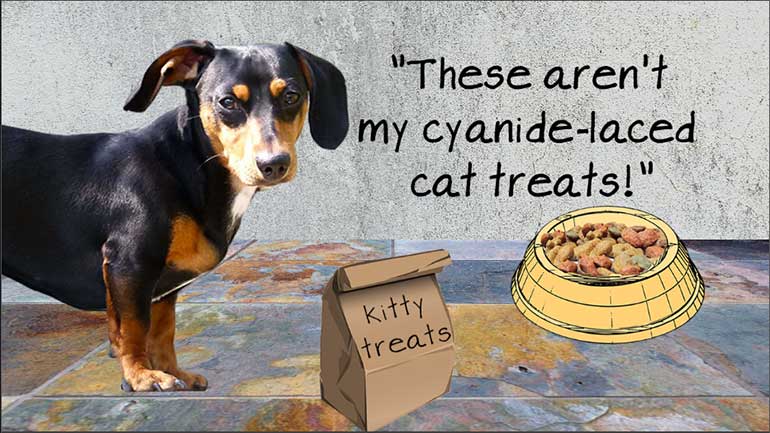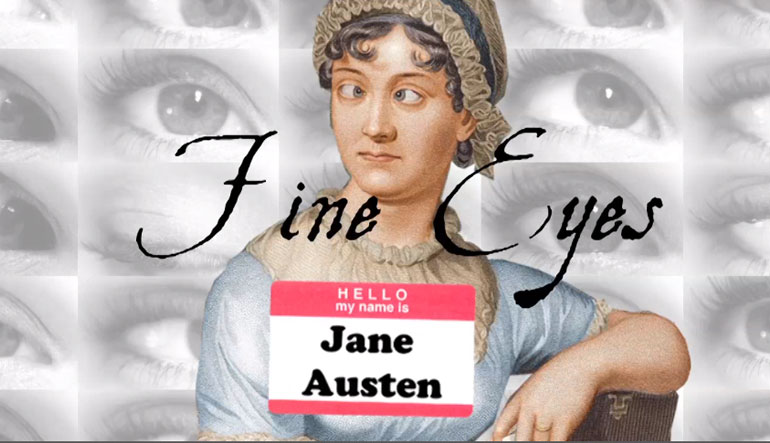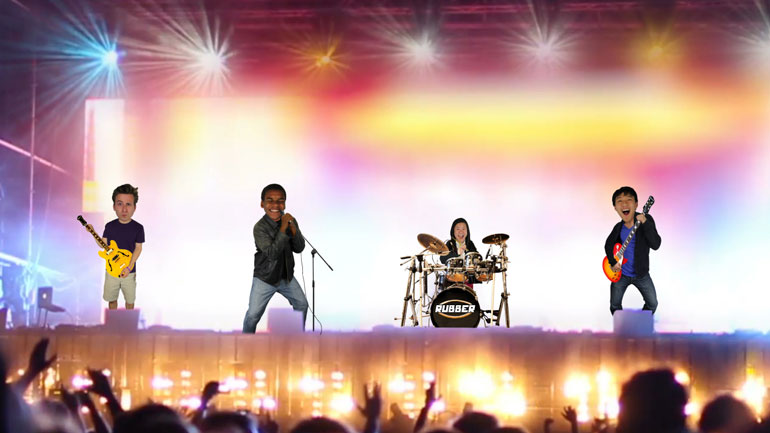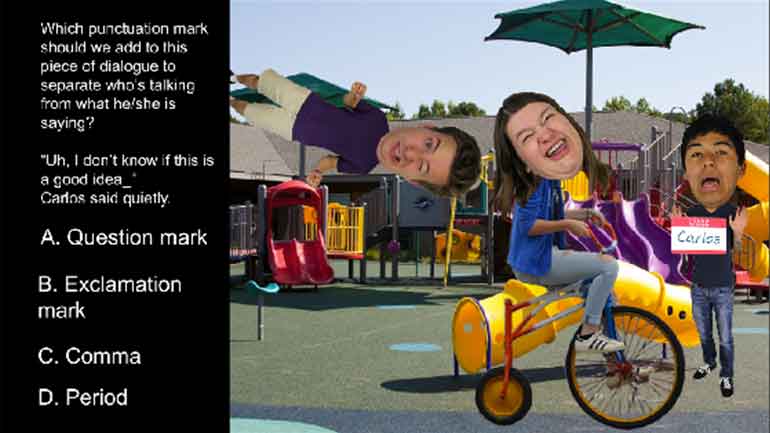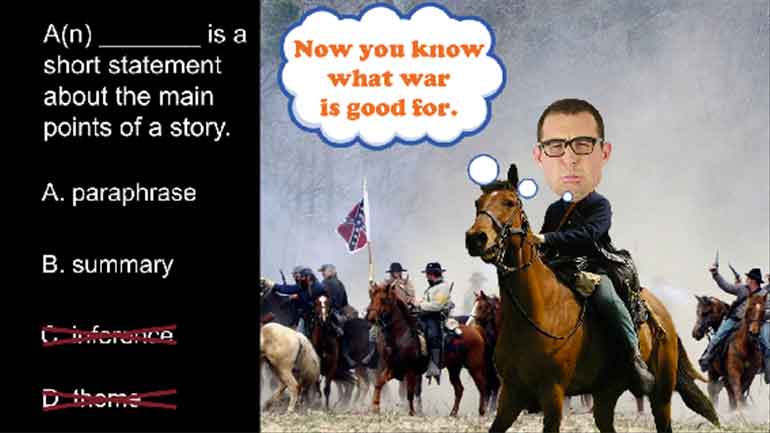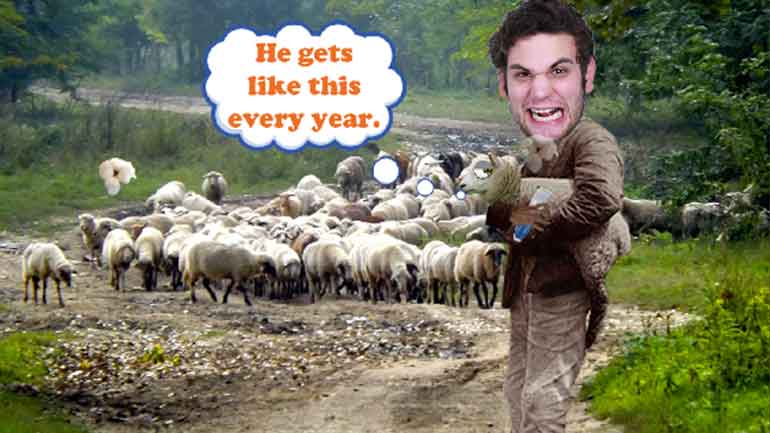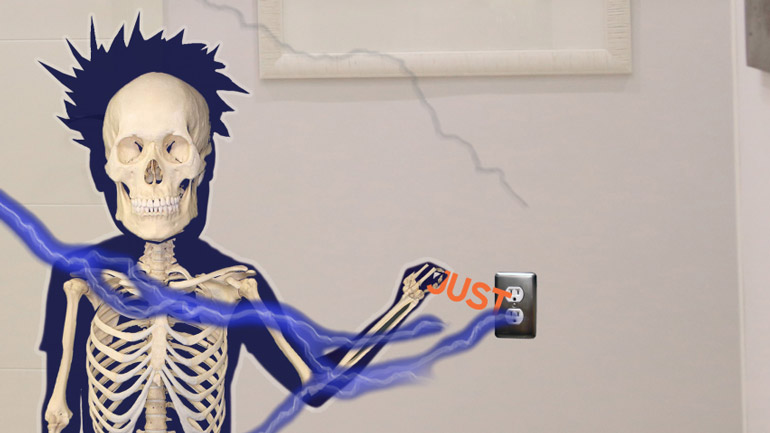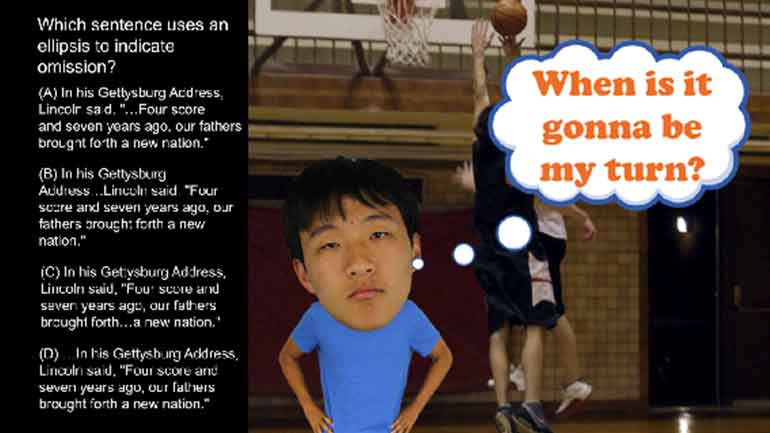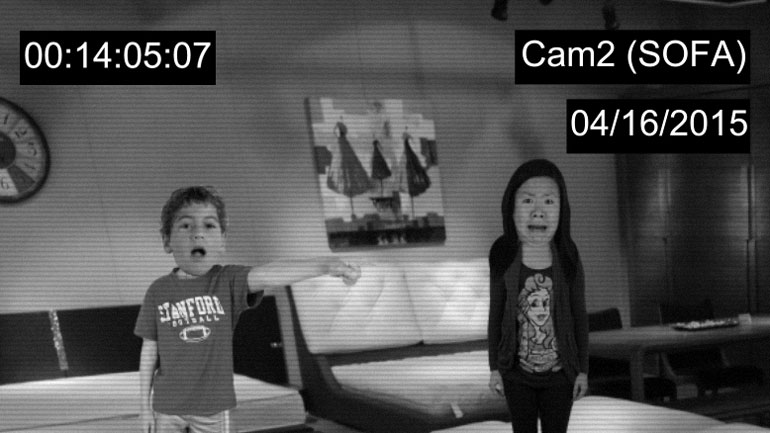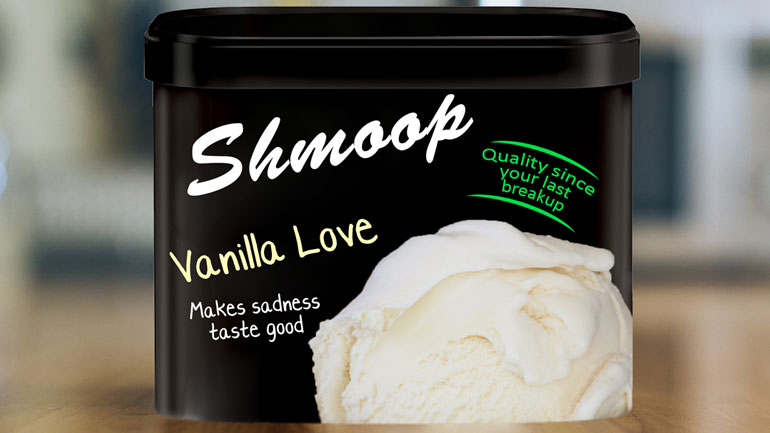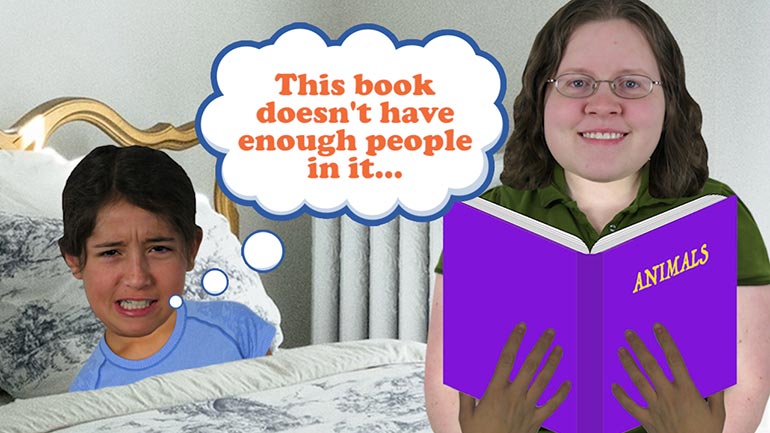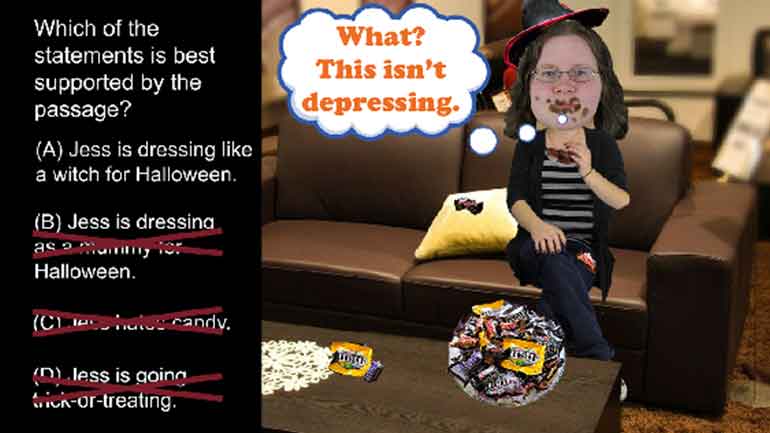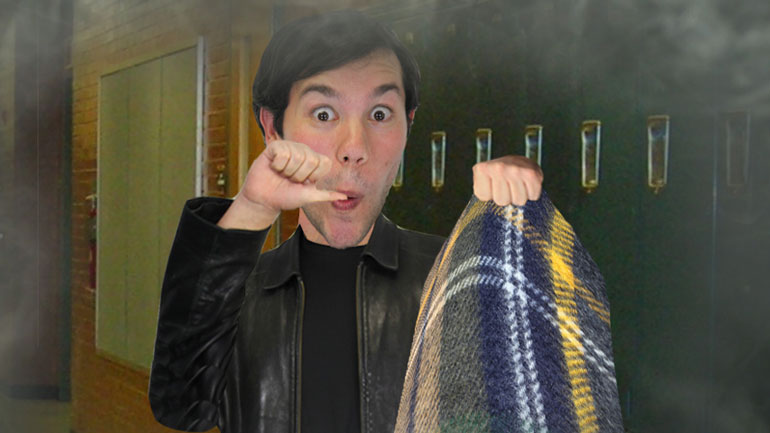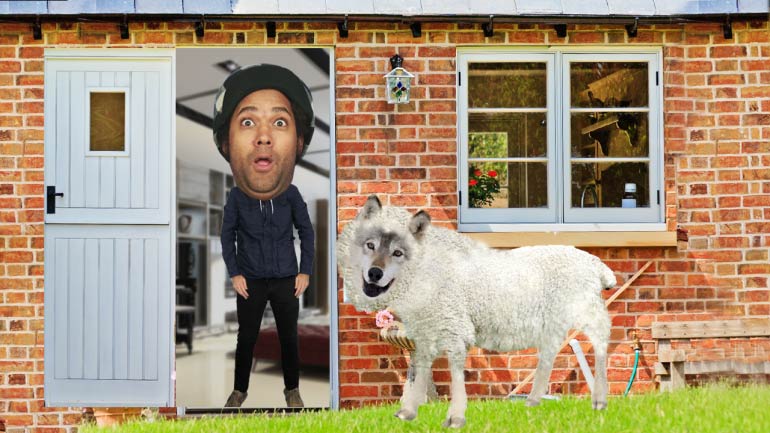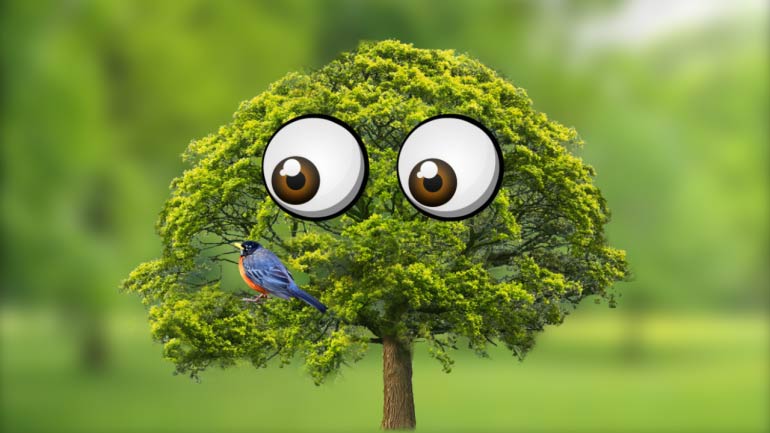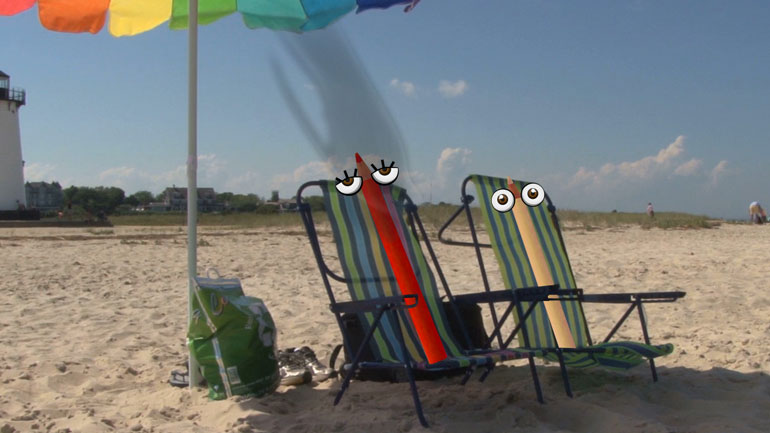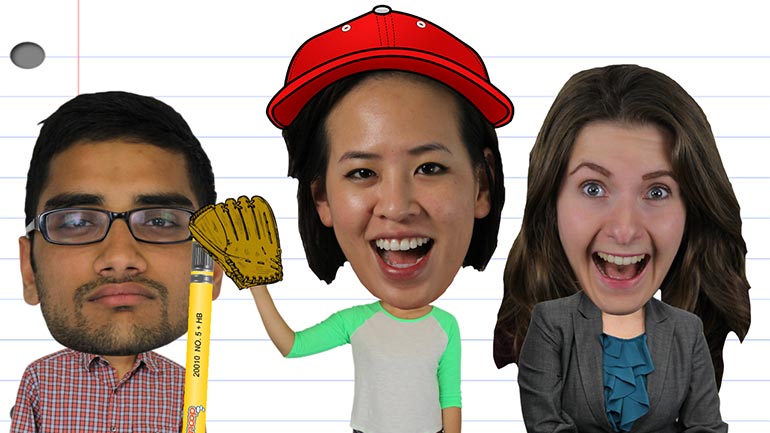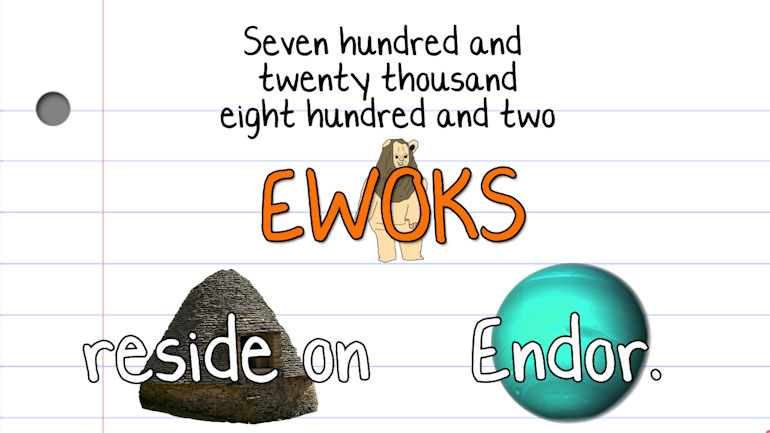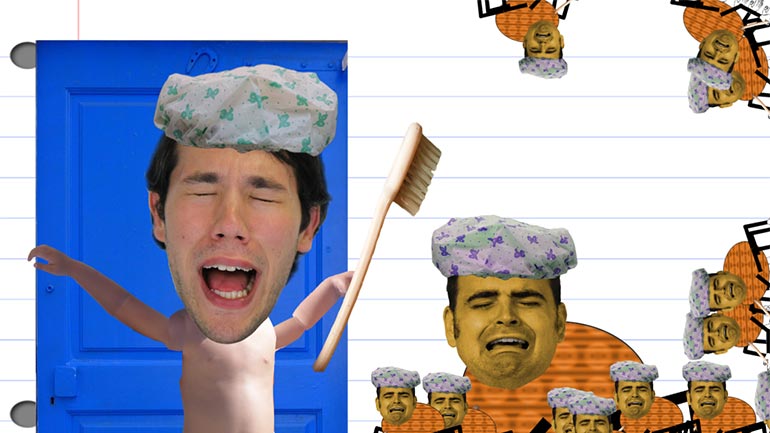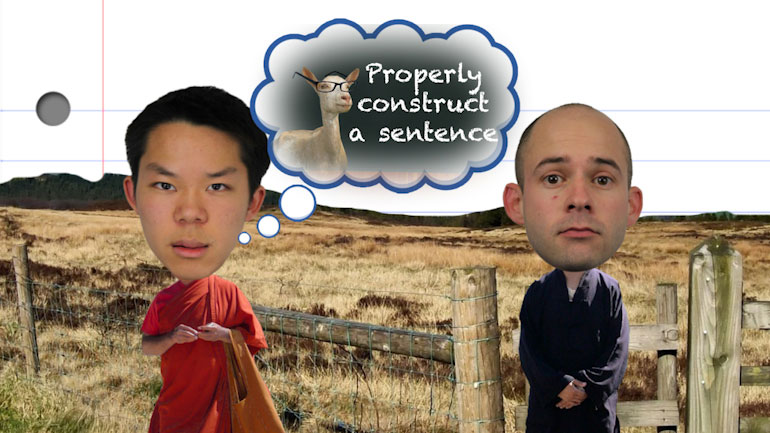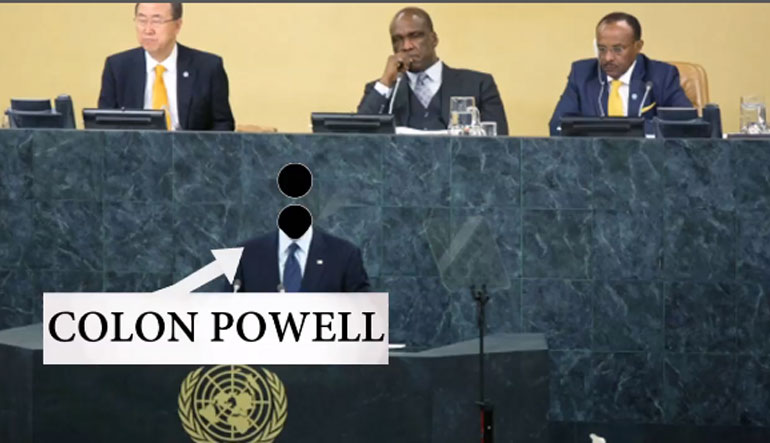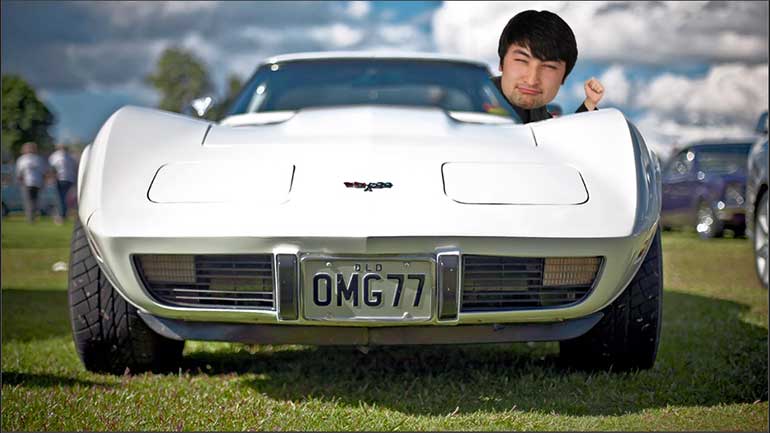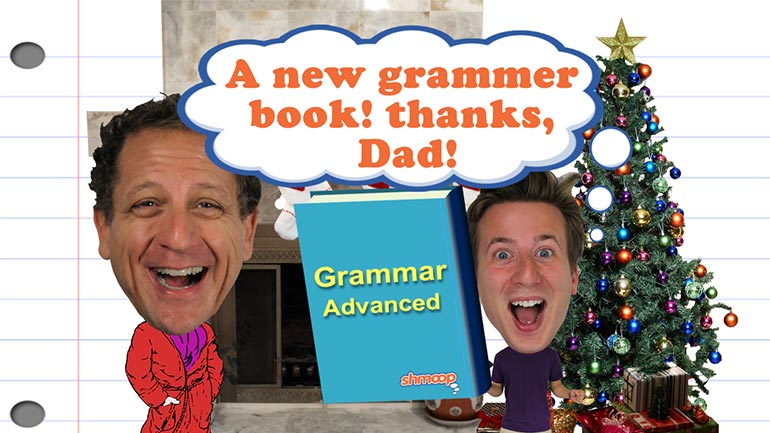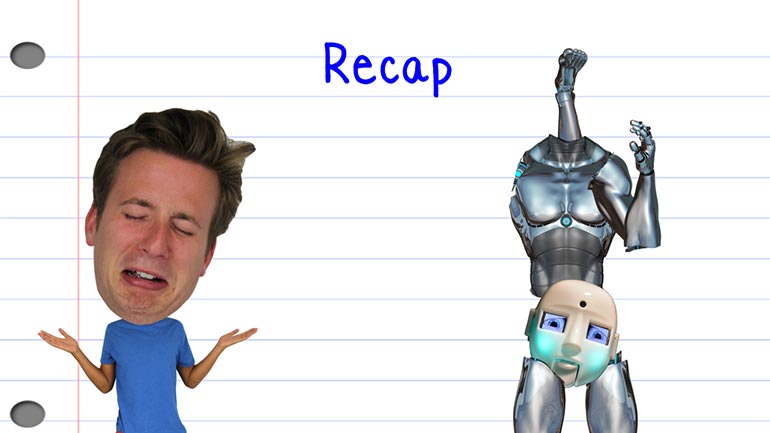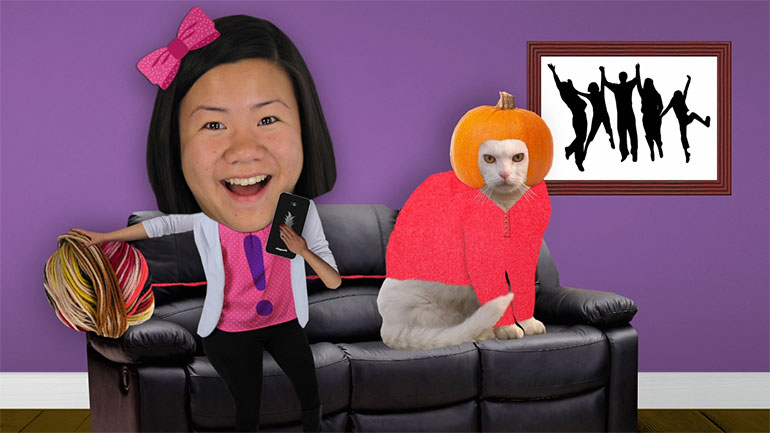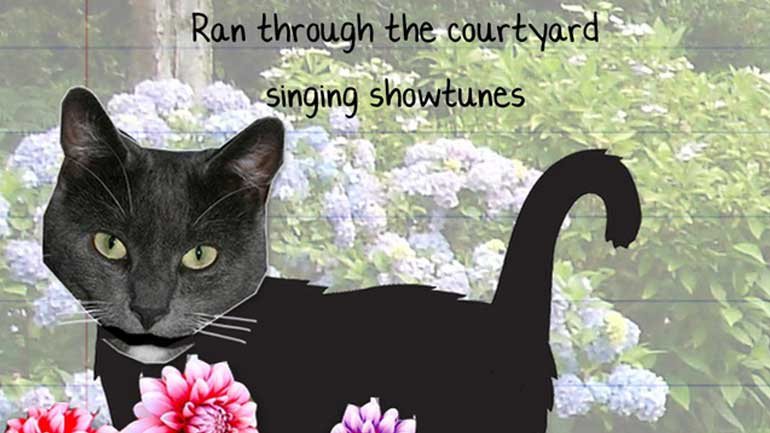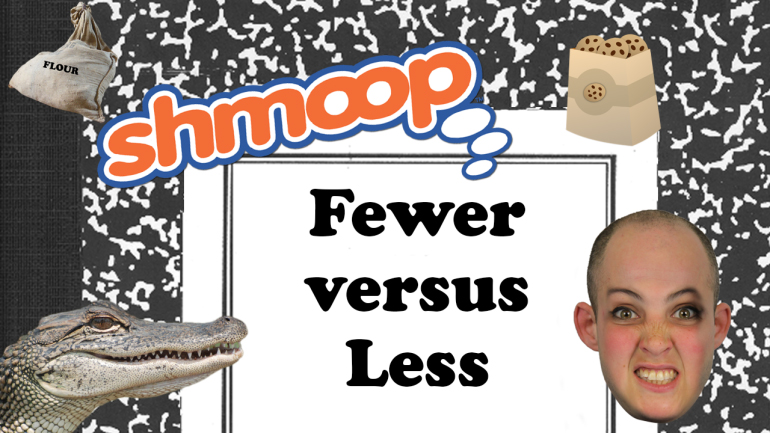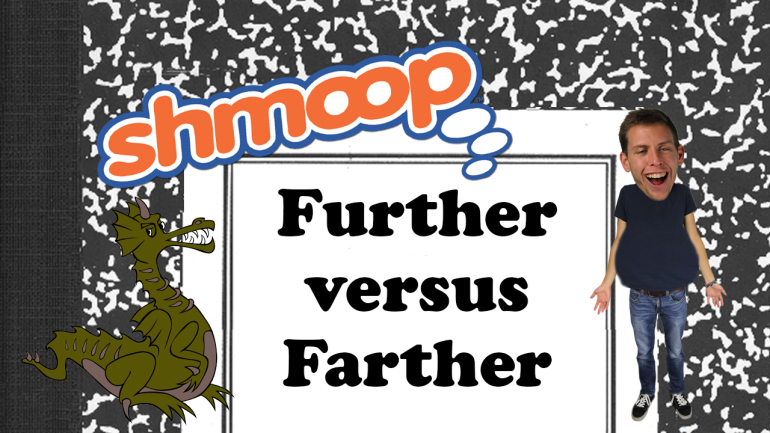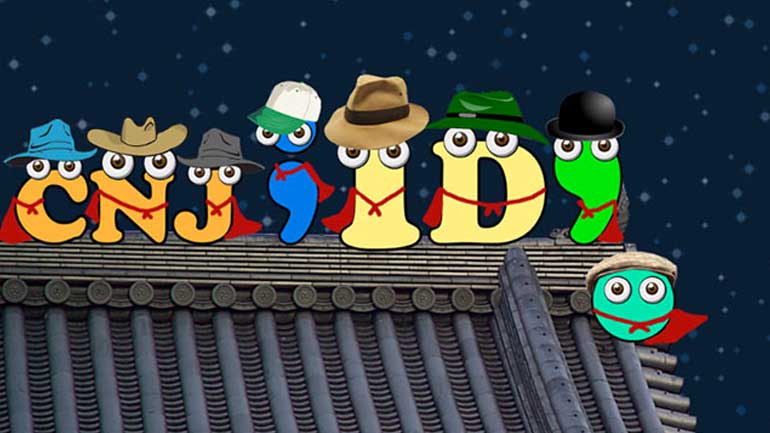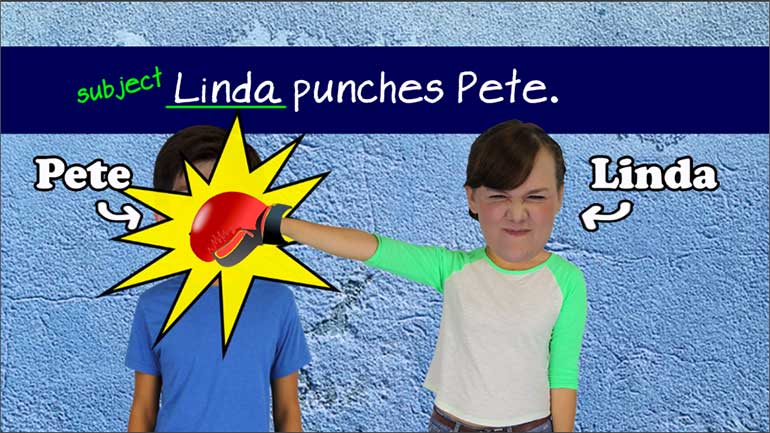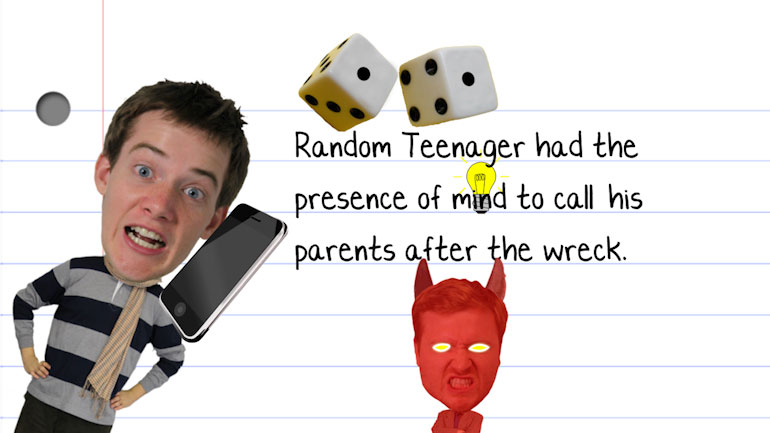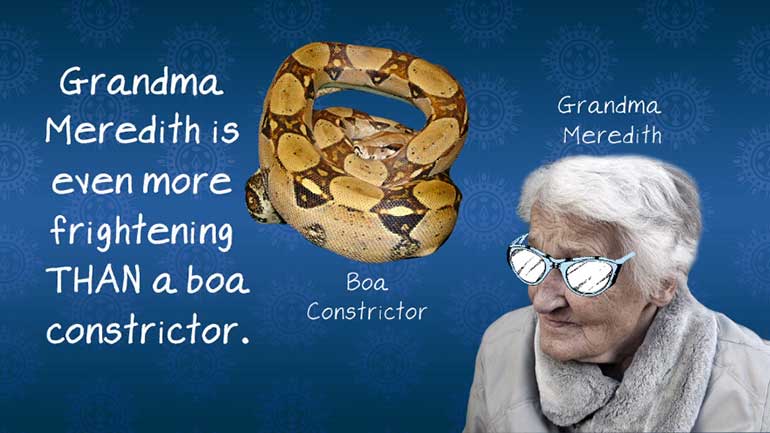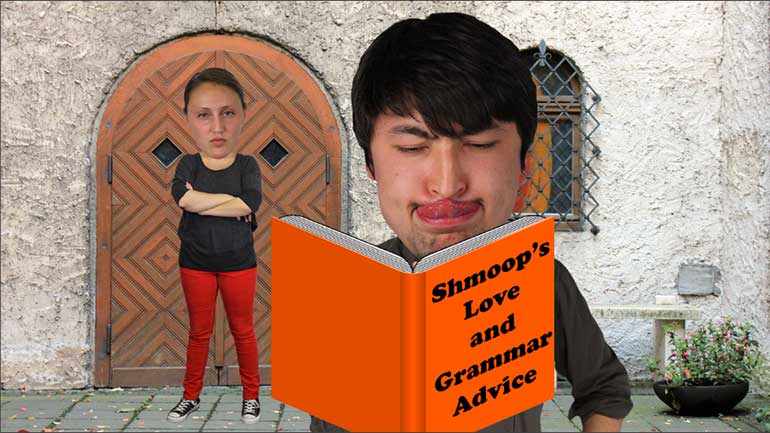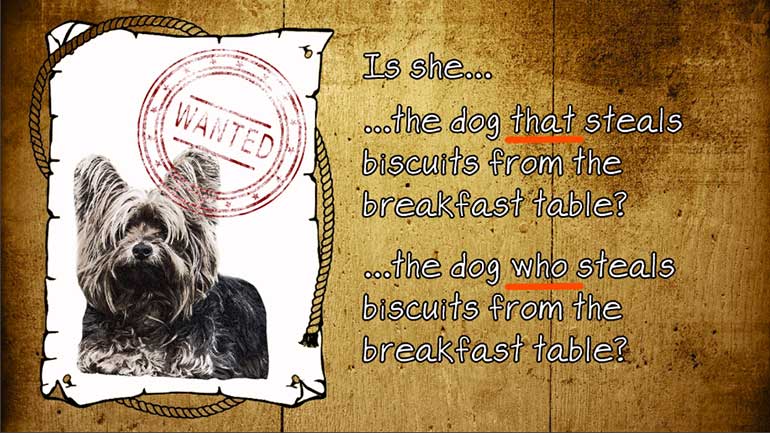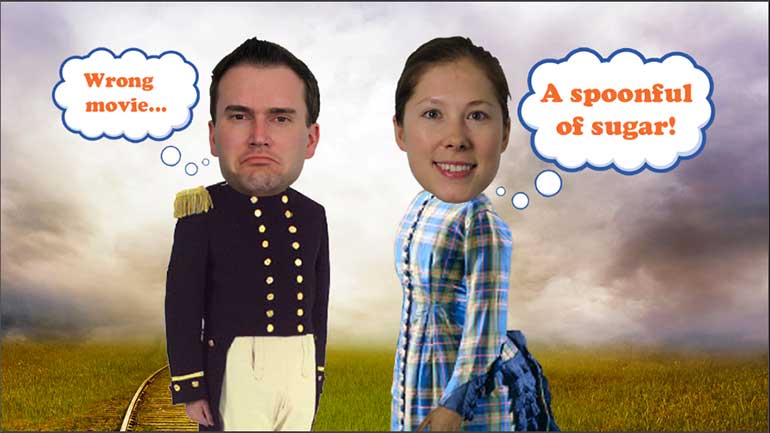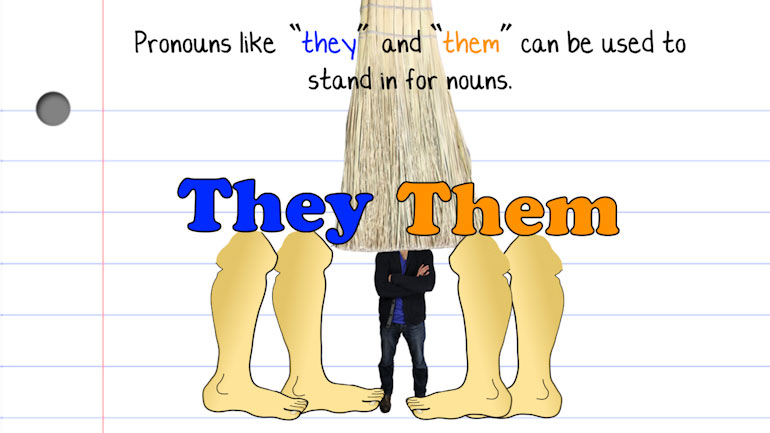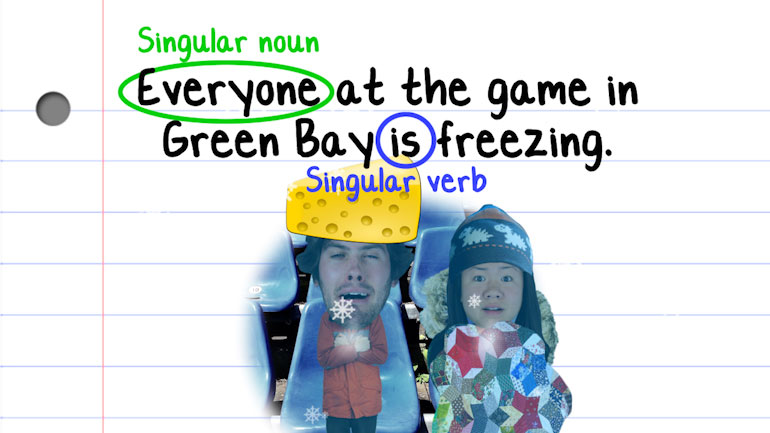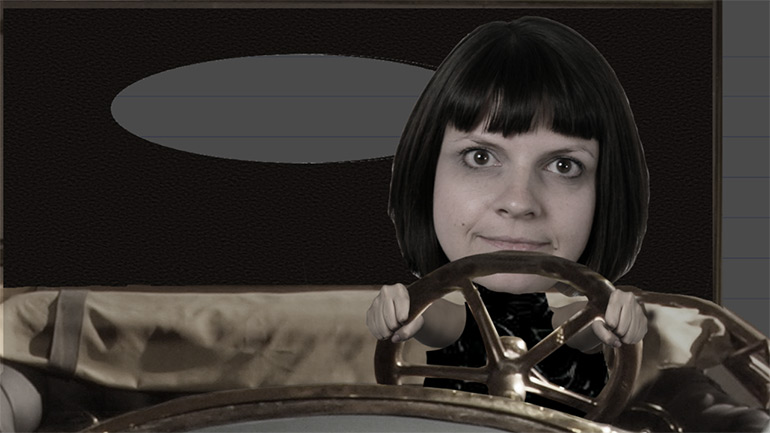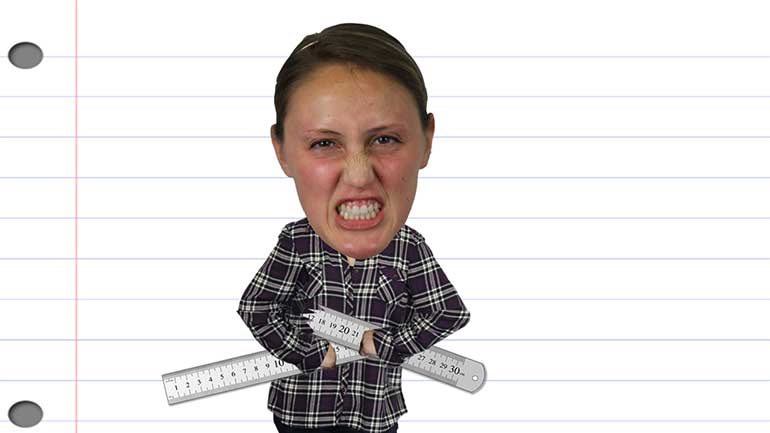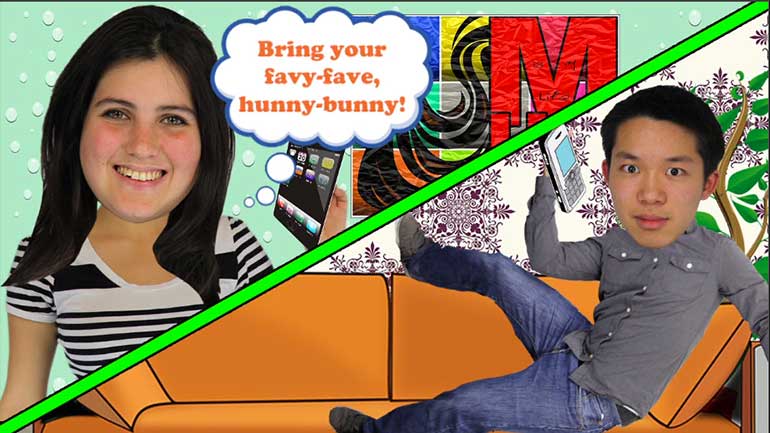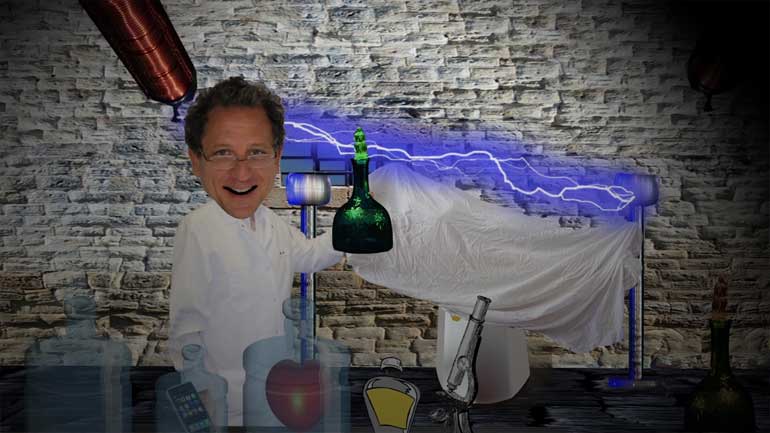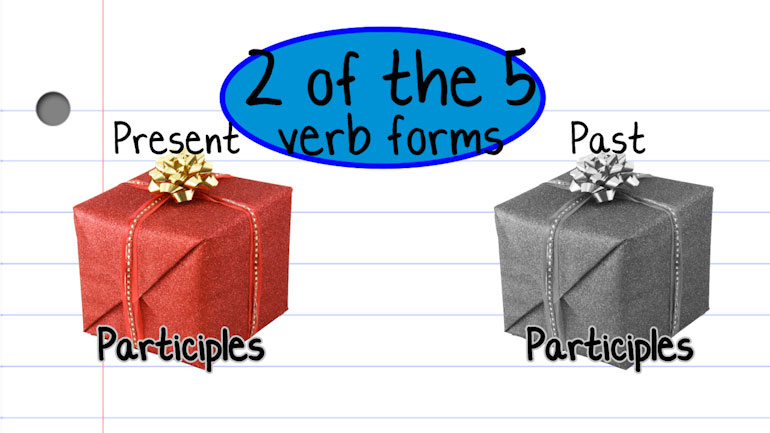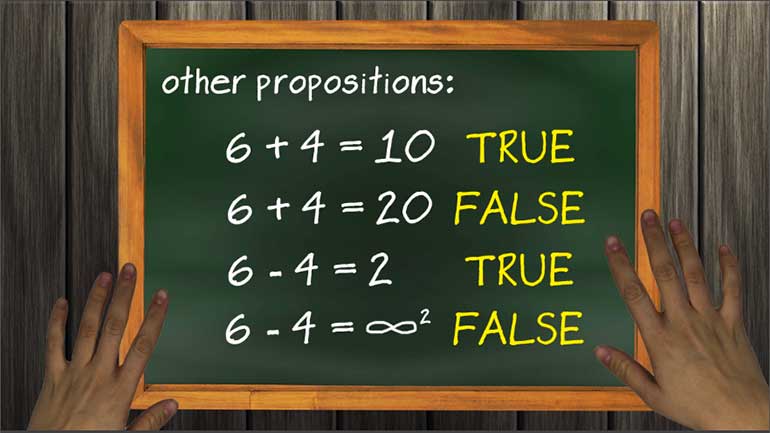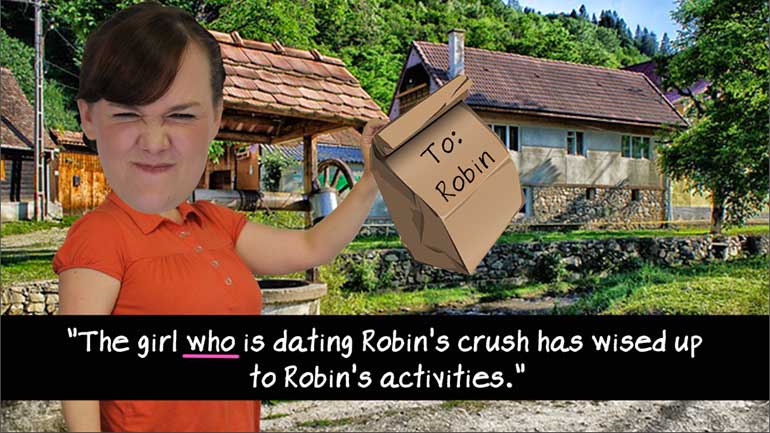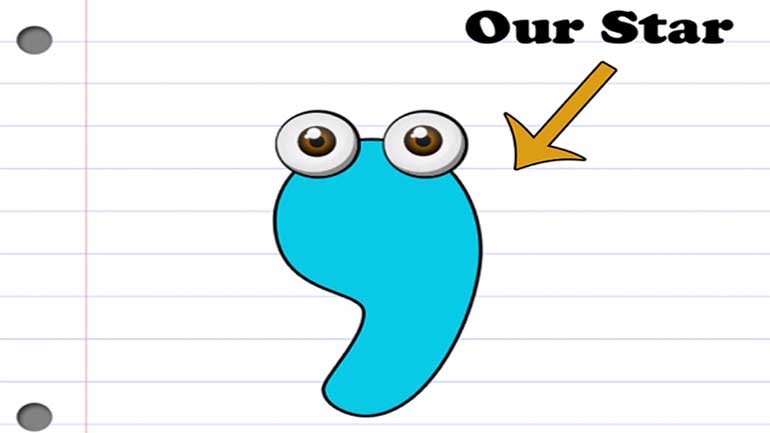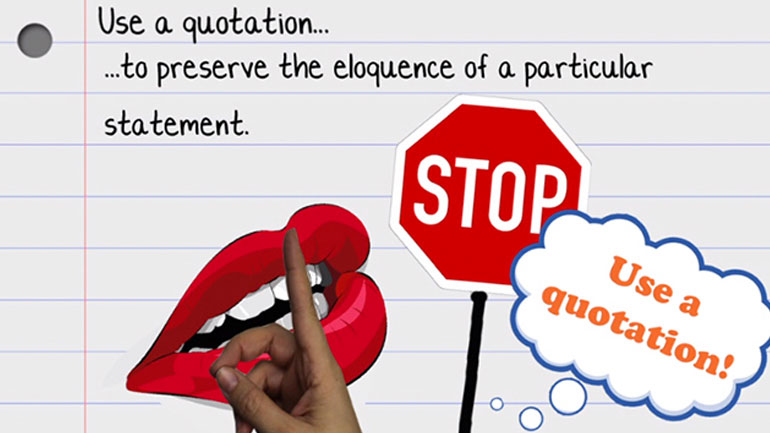ShmoopTube
Where Monty Python meets your 10th grade teacher.
Search Thousands of Shmoop Videos
English Videos 1712 videos
This video defines a primary source and what makes it different from a secondary source. What counts as original material? And where can we find th...
This video explains the difference between affect and effect and provide tips for remembering which is which and when to use each one. If you suffe...
Want even more deets on Question Marks? Click here to review. Or take a look at our entire grammar section for all the goods.
Hyphens 1879 Views
Share It!
Description:
The hyphen is used in all sorts of different situations, from making compound words to uniting adjectives to joining prefixes to words that have to be capitalized. Check out this video for all the different jobs the small but mighty hyphen carries out.
Transcript
- 00:04
Hyphens, a la Shmoop. Today is the day of days. At long last, Greg
- 00:09
is going to meet his girlfriend Cindy's parents.
- 00:12
Is he nervous? Of course. After all, Cindy's dad is the local sheriff...
- 00:16
But Greg isn't as unsure of himself as, say, a hyphen faced with the word "email"...
- 00:21
...or should that be "e...hyphen...mail"? We normally see hyphens in two places. Say
Full Transcript
- 00:28
a line meets the margin right in the middle of a word.
- 00:31
We'd put a hyphen where the word gets cut off to show that the word continues on the
- 00:36
next line.
- 00:39
We also find hyphens joining compound words together.
- 00:42
Now, the rules for compound words are a little... weird. Basically, there's a lot of flip-flopping.
- 00:48
We might start with an open compound, which consists of two separate words.
- 00:52
A couple of years later, the lords and ladies of the English language may decide that said
- 00:57
open compound should become a hyphenated compound...
- 01:00
...or even a closed compound, which is where the two words become one, no hyphen necessary.
- 01:09
If this doesn't seem completely confusing, keep in mind that open compound words that
- 01:13
have completed the transition into closed compound words...
- 01:16
...can morph back into open compound words, and vice versa...
- 01:20
...with phases as a hyphenated compound in between.
- 01:29
Given all the back and forth when it comes to compound words, it's best to just pick
- 01:32
up a dictionary and see what it has to say when we're trying to decide whether to hyphenate
- 01:37
or not. While Merriam-Webster tells us of some words
- 01:40
that automatically come with hyphens...
- 01:42
...we might sometimes choose to place a hyphen between two words in order to avoid confusing
- 01:46
the reader.
- 01:48
Say we have this sentence, "Right before lunch, Greg was attacked by Cindy's mom's
- 01:52
floppy...hyphen...eared dog."
- 01:54
The words "floppy" and "eared" describe the killer pooch. When we hyphenate these
- 01:59
two words so they read "floppy...hyphen...eared"...
- 02:01
...this sentence makes sense. The dog has floppy ears...
- 02:05
...which doesn't stop it from being a menace.
- 02:07
However, if we left "floppy" and "eared" as two distinct words describing the dog...
- 02:12
...our readers would imagine a mutt that was both floppy...
- 02:15
...and eared...
- 02:17
...whatever that means.
- 02:21
In this case, placing a hyphen between "floppy" and "eared" keeps our readers from thinking
- 02:25
we don't know what the heck we're talking about.
- 02:28
Hyphens can also be used to clarify pronunciation.
- 02:31
If Cindy's mom mentions over lunch that she needs to re-press her husband's uniform...
- 02:36
...the one he wears when he's out protecting truth, justice, and the American way...
- 02:40
...we know she's thinking of the word "re...hyphen...press"...
- 02:43
...as in, she needs to break the iron and the starch out of the closet.
- 02:48
The word "repress", sans hyphen, means something completely different...
- 02:54
...as exemplified by Cindy's joking over lunch that she's had to repress the memories
- 02:58
of all the boyfriends her dad has chased off over the years.
- 03:01
In many cases, we use a hyphen when two adjectives appear just before the noun they modify.
- 03:06
For example, Greg would like to have a long...hyphen...term relationship with Cindy.
- 03:12
The close...hyphen...minded sheriff, however, would like his daughter to have a different
- 03:18
boyfriend...
- 03:18
...maybe one who votes Republican? And hunts? And drives a truck? Is that too much to ask?
- 03:26
If two adjectives appear after the noun they modify, then we don't use a hyphen.
- 03:31
We'd just say, for example, that Greg wants his relationship with Cindy to last for the
- 03:35
long term...
- 03:36
...but Cindy's dad isn't likely to allow that because he has a closed mind...
- 03:40
...at least about guys who vote Democrat. We also use hyphens when joining prefixes
- 03:46
to words that must be capitalized...
- 03:48
...or when joining single letters to words...
- 03:51
...or when writing out the numbers twenty-one through ninety-nine.
- 03:58
For example, we might say, "Greg yelled at Cindy's dad during dessert after the
- 04:03
sheriff said it was un...hyphen...American to wear T...hyphen...shirts to church on Sunday."
- 04:09
And there's poor Cindy thinking, "That's boyfriend number thirty...hyphen...two Dad's
- 04:14
scared away now." Finally, we can use hyphens to string several
- 04:19
words together to create a super...hyphen...special...hyphen...never...hyphen...before...hyphen...seen... adjective.
- 04:23
Just don't do that very often, because it gets annoying...
- 04:27
...kind of like Cindy's stuck...hyphen...in...hyphen...the...hyphen...Dark...hyphen...Ages dad...
Related Videos
This video explains the difference between affect and effect and provide tips for remembering which is which and when to use each one. If you suffe...
Want even more deets on Question Marks? Click here to review. Or take a look at our entire grammar section for all the goods.
Want even more deets on Your vs. You're? Click here to review. Or take a look at our entire grammar section for all the goods.
This video defines a primary source and what makes it different from a secondary source. What counts as original material? And where can we find th...
